This pancake recipe is the ultimate classic! Light, fluffy, and made with simple ingredients you likely already have in your kitchen. Easily turn it into buttermilk pancakes or mix up the flavors with blueberries, chocolate chips, nuts, and more. This is the only pancake recipe you’ll ever need!
Revolutionize your breakfast game by serving these pancakes with our Cinnamon Buttermilk Syrup.
Why Our Recipe
- Perfectly light and fluffy pancakes made with kitchen-staple ingredients.
- One bowl recipe that’s adaptable for buttermilk pancakes and more.
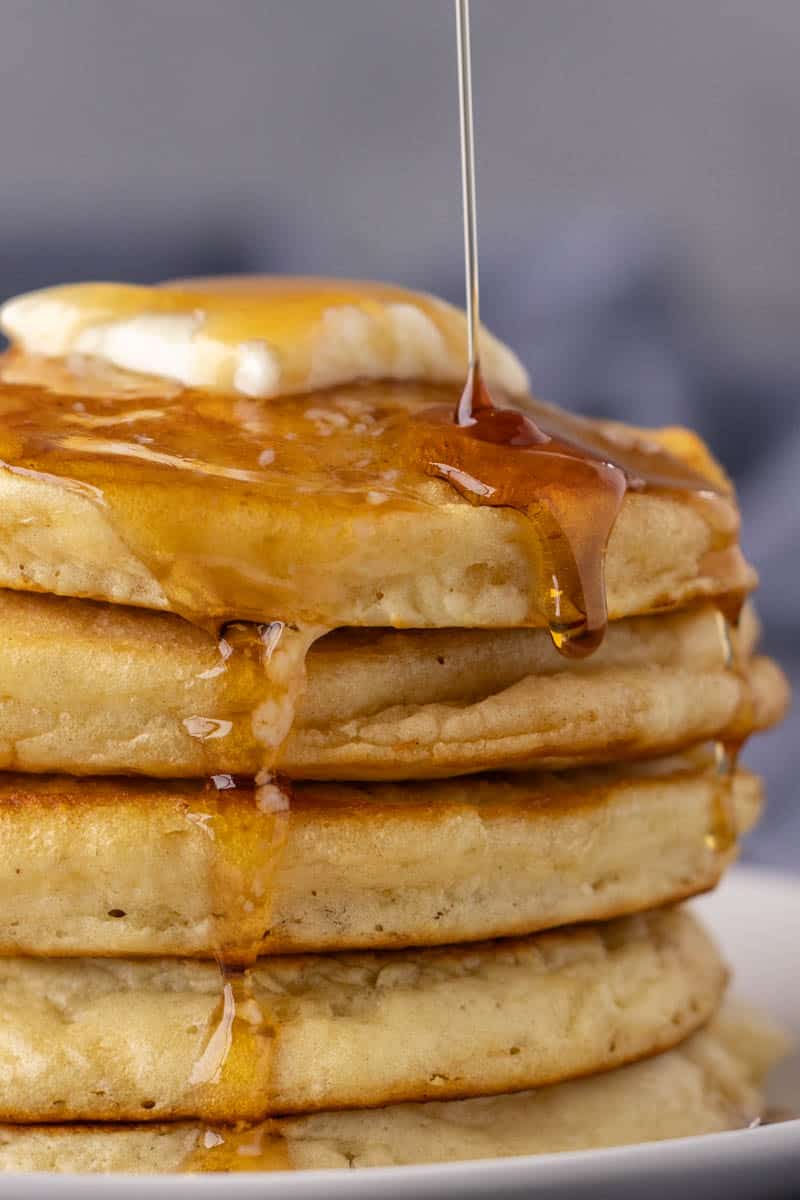
Nothing says “breakfast” like a batch of warm, fluffy pancakes. This recipe is your ticket to golden perfection every single time, and it’s so easy to make! With a quick substitution, you can whip up buttermilk pancakes or even prepare a pancake mix for those busy mornings. Plus, you can customize with blueberries, chocolate chips, or your favorite toppings.
Ingredients Notes
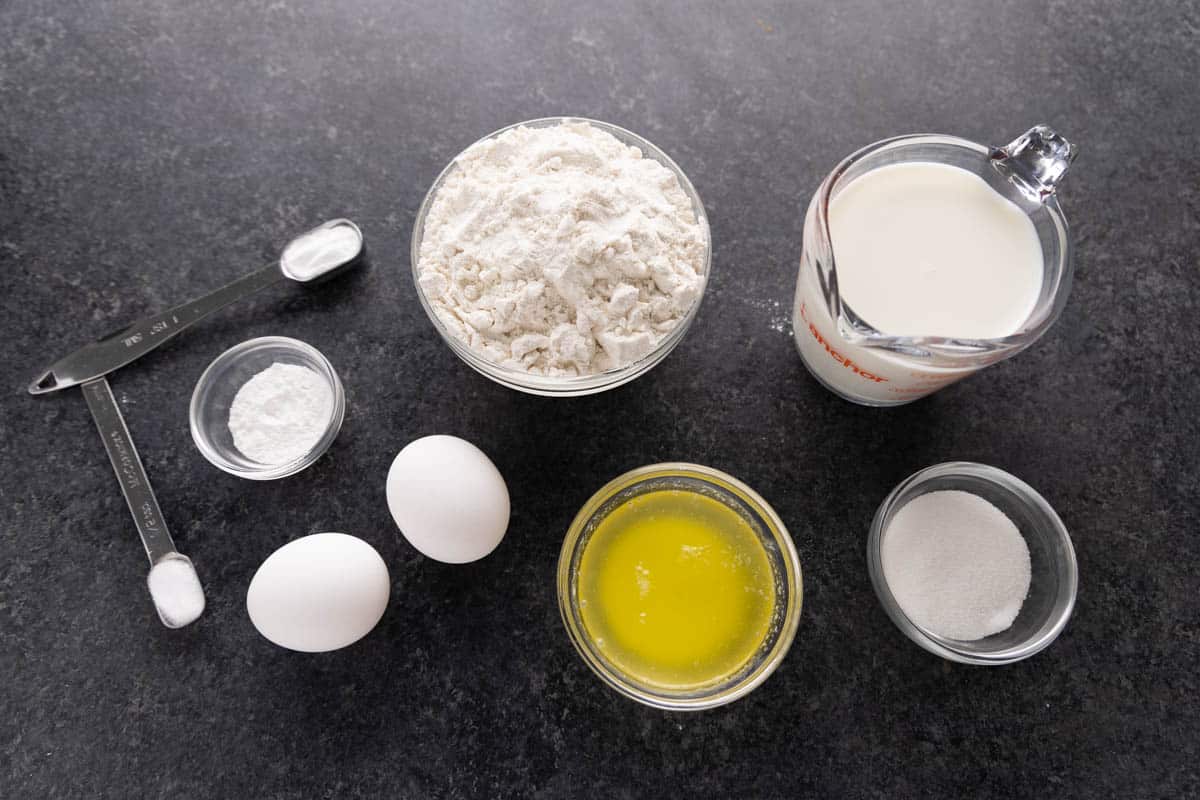
- All-Purpose Flour: Stick with regular all-purpose flour for fluffy results. Gluten-free options can work but may alter texture.
- Sugar: Just enough to add a hint of sweetness without overpowering the pancakes.
- Baking Powder and Baking Soda: These leavening agents ensure the perfect rise. Check expiration dates to avoid flat pancakes.
- Milk or Buttermilk: Regular milk works beautifully, but swap with buttermilk for a little tang.
- Eggs: Regular old Grade AA large eggs will do.
- Melted Butter: Melt on the stovetop or in the microwave.
Adding Extras
This recipe is incredibly versatile, making it easy to customize with your favorite mix-ins. Feel free to mix and match to suit your preferences or experiment with unique combinations like chocolate chip banana or blueberry almond!
Blueberries: Add up to ½ cup of fresh or frozen blueberries directly into the batter. For even distribution, sprinkle them on the pancakes after pouring the batter onto the skillet.
Chocolate Chips: Use up to ½ cup of semi-sweet, milk, or dark chocolate chips.
Nuts: Finely chop walnuts, pecans, or almonds and fold up to ⅓ cup into the batter for added crunch.
Spices: Add a pinch of cinnamon or nutmeg to the dry ingredients for a cozy fall or winter vibe.
Zest: Brighten up your pancakes with a teaspoon of lemon or orange zest.
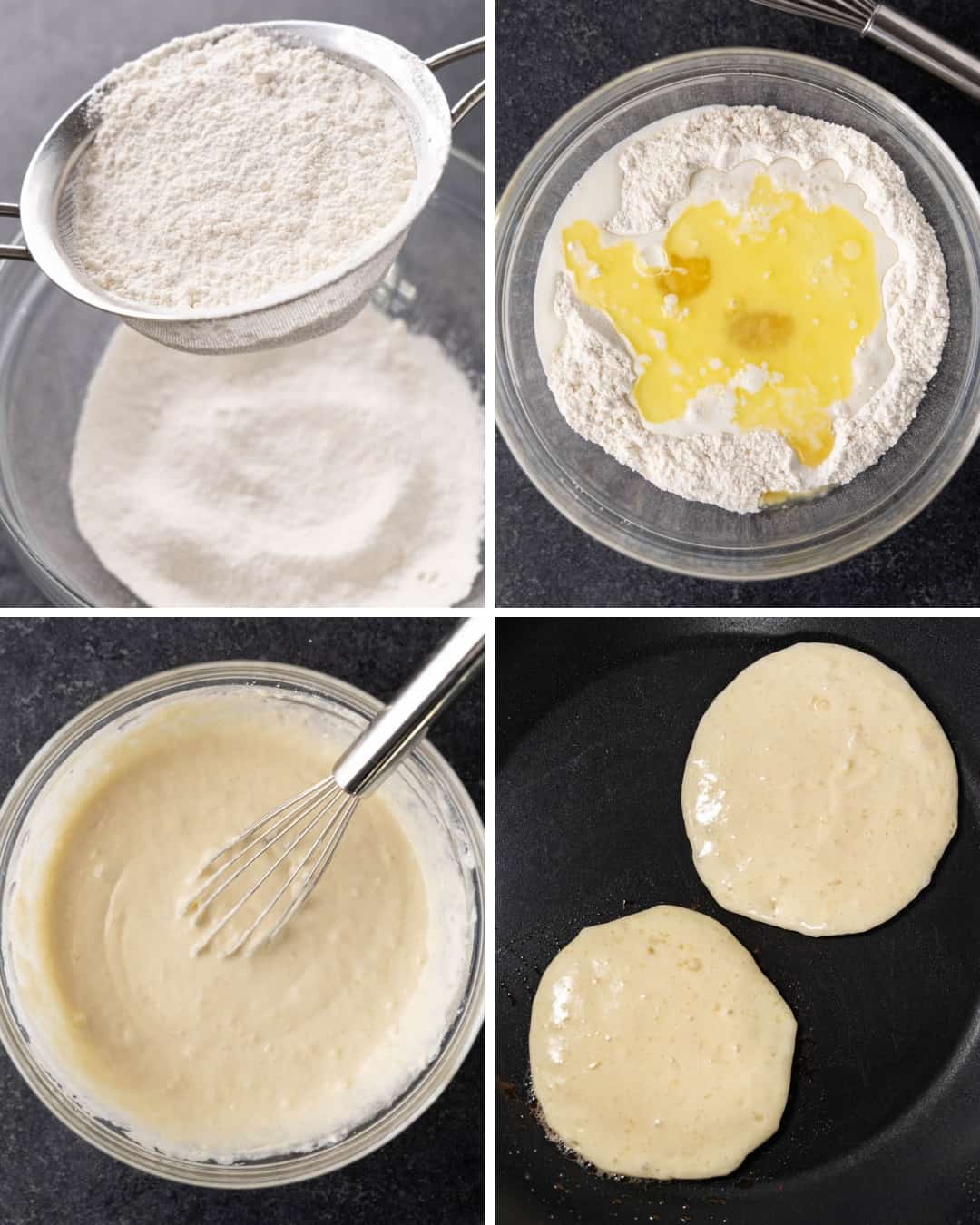
Perfect Flipping
Preheat Properly: Heat your skillet or griddle over medium-high heat until it’s evenly warm. A drop of water should sizzle and evaporate on contact.
Oil or Butter: Lightly grease your pan with a thin layer of oil or melted butter. Wipe off excess with a paper towel for even cooking and no burnt edges.
When to Flip: Pour about ¼ cup of batter onto the pan. Wait for bubbles to form on the surface and for the edges to lose their glossy appearance before flipping.
Flip Gently: Use a thin spatula to carefully flip your pancake. Cook for an additional 1–2 minutes on the second side until golden brown.
Temperature Control: If pancakes are browning too quickly, reduce the heat slightly. It’s better to cook low and slow than to risk burning.
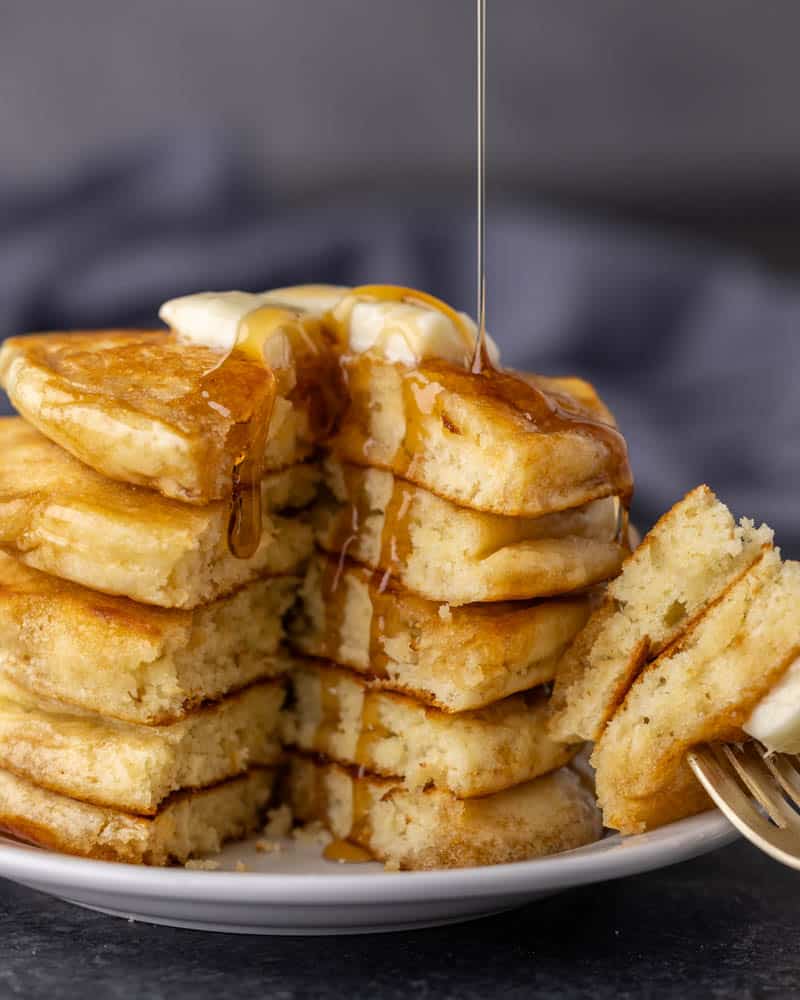
For Buttermilk Pancakes
Substitute milk with 1 cup of buttermilk for a fluffy buttermilk pancake. No buttermilk? Make your own by adding 1 tablespoon of vinegar or lemon juice to a cup of milk and letting it sit for 5 minutes.
Storage & Reheating Instructions
Storage completely cooled pancakes in an airtight container. Refrigerate for up to 3 days.
Freeze by laying pancakes flat on a baking sheet in a single layer and freeze for 1–2 hours. Once frozen, transfer to a resealable freezer bag and store for up to 3 months.
Reheat in the microwave in 20–30 second intervals until warmed through. For crispy edges, reheat frozen pancakes in the toaster.
More delicious pancake recipes…
Perfect Blueberry Pancakes
15 mins
Easy Oatmeal Pancakes
10 mins
Chocolate Pancakes
15 mins
Easy Apple Pancakes
15 mins
Watch the video below where Caytlin will walk you through every step of this recipe. Sometimes it helps to have a visual, and we’ve always got you covered with our cooking show. You can find the complete collection of recipes on YouTube, our Facebook Page, or right here on our website with their corresponding recipes.

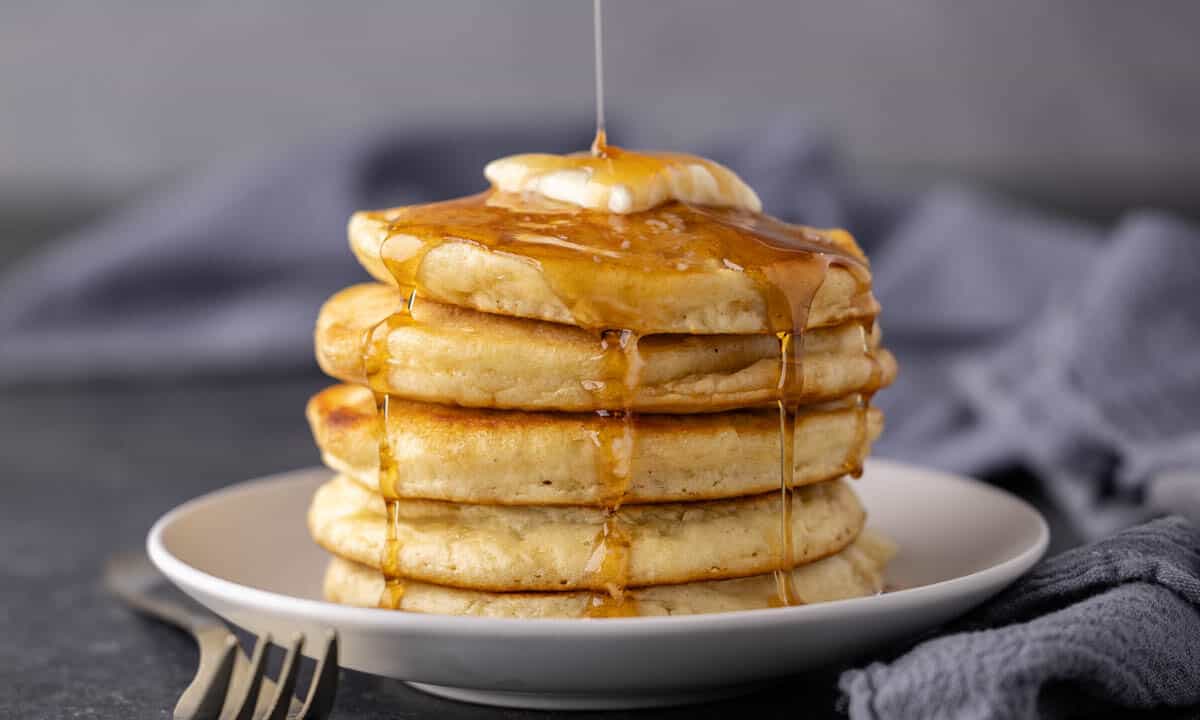
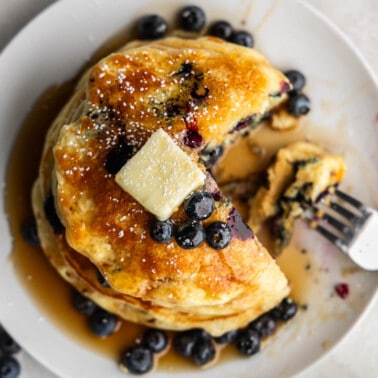
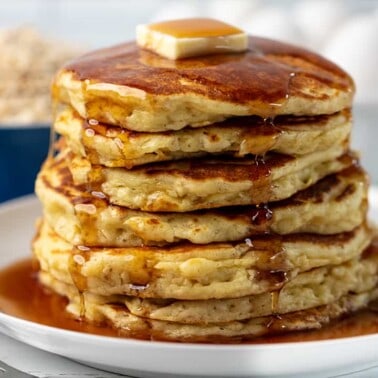
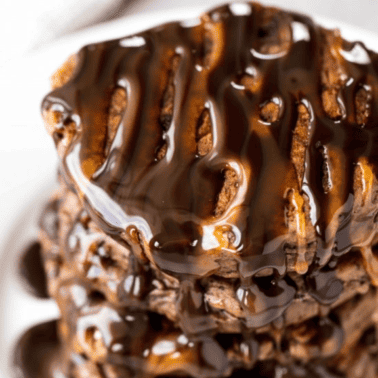
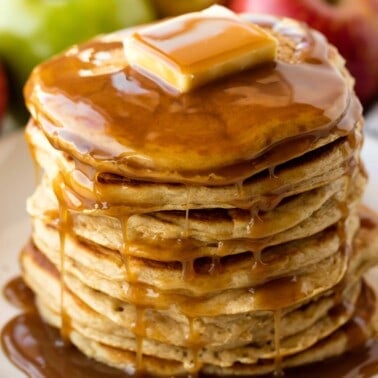
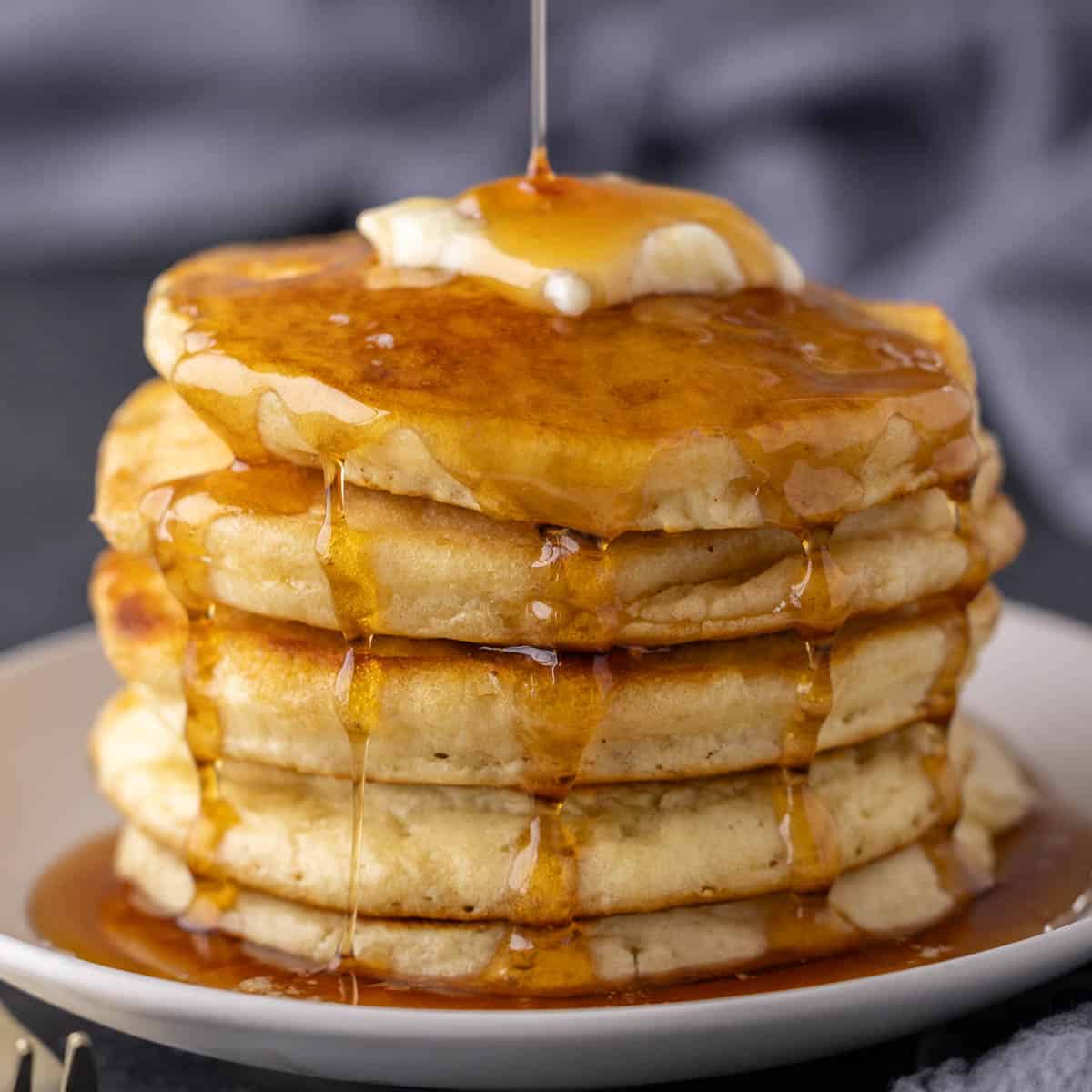
My go-to recipe for pancakes!
Batter very viscous. Relying on bubbles that seem too long to occur
when cooking. Cooking seemed to be an effort due to batter. From getting batter into the pan to guessing doneness , makes this recipe forgettable.
These were really good! The batter was extremely thick though and bubbles couldn’t get through to the top. I ended up adding another 1/4 – 1/2c buttermilk to thin it out and that batch cooked much better. Definitely a keeper recipe!
I am so grateful for these awesome recipes. I live alone, had recently been very I’ll, and then to top it off I do NOT like to cook. These recipes look good and easy to make. Thank you for my making these so available.
Kathy Eble
First pancakes I ever made from scratch. They were great my family love them. I’ll never buy a box mix again.
My Best pancakes yet!! Easy to make and so delicious. Thank you for making me look so good to my family. My new go to pancake recipe!
Yummy but I don’t add sugar.
I also like it that you put metric methode in your recipe!
Thank you so much for that!
This are sooo goood!
Can I make some request too? I really curious of your coffe cake. Do you mind to share it?
Thank you.
Caroline
Delicious! I halved the recipe and have made these pancakes four days in a row. I use light spelt flour, and a combination of almond milk and kefir. I can’t stop thinking about these pancakes!